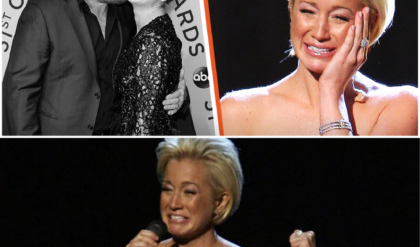In the letters page to Walking Dead #87, Robert Kirkman defended his protagonist, asking readers to consider the toll of his traumatic experiences.
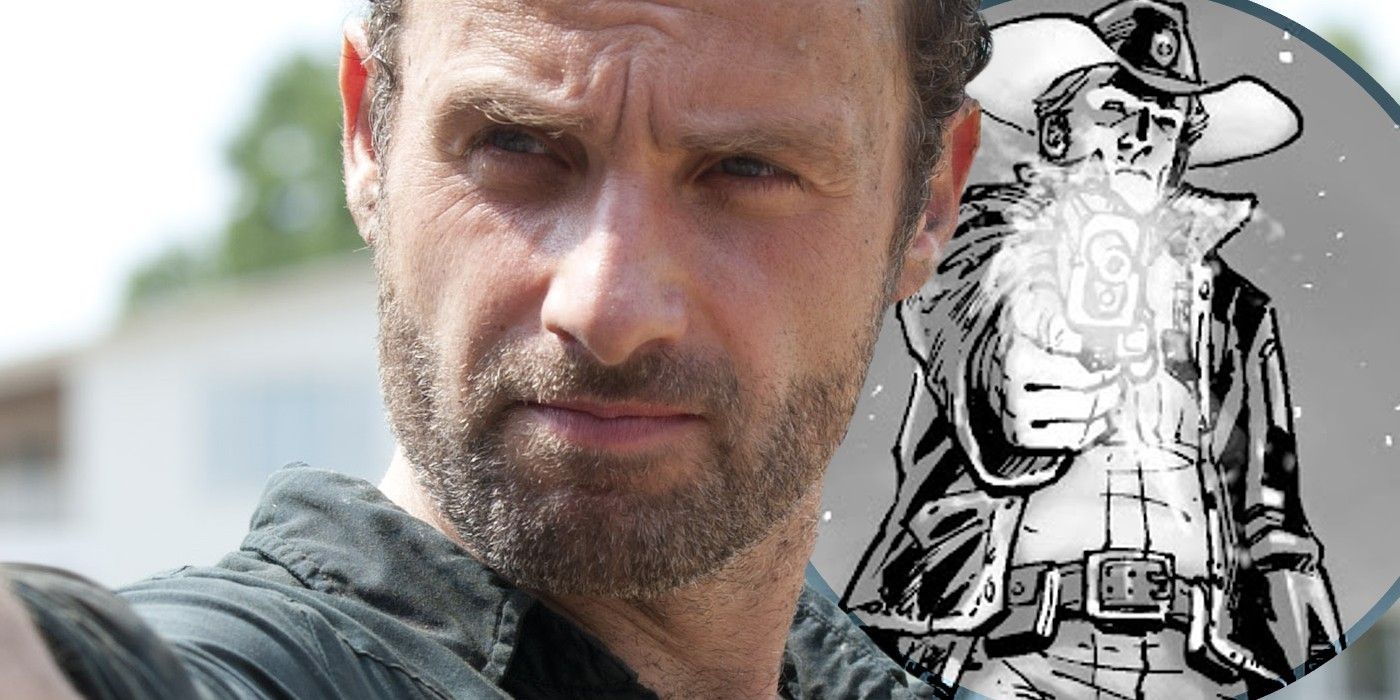
Robert Kirkman, creator of The Walking Dead, acknowledged that the difficult decisions Rick Grimes was forced to make – as he sought to keep himself and his loved ones alive following the zombie outbreak – made him a more difficult character to “root for” as the story progressed. However, Kirkman stressed that it was important to judge his protagonist in the proper context of a bitter fight for survival.
In the letters page to The Walking Dead #87 – reprinted as part of TheWalking Dead Deluxe full-color reissue of the comic – Kirkman defended Rick against a fan’s visceral reaction to the events of an earlier issue.
Though he admitted Rick’s actions were brutal, he disputed that they were unforgivable. The series’ creator noted that why Rick did the things he did had to be taken into account when being critical of his actions, saying: “you really have to consider what he’s been through, from day one, and that’s tough.“
The emotional gutpunch of [Jessie and Ron’s death in The Walking Dead #83] – and the moral complication of the moment for Rick Grimes – was precisely what Robert Kirkman wanted when he wrote the scene…and the fan letter in Walking Dead #87 proves how effective it was.
Robert Kirkman’s “Favorite Thing” About The Walking Dead Comic
A Morally Complicated Apocalypse
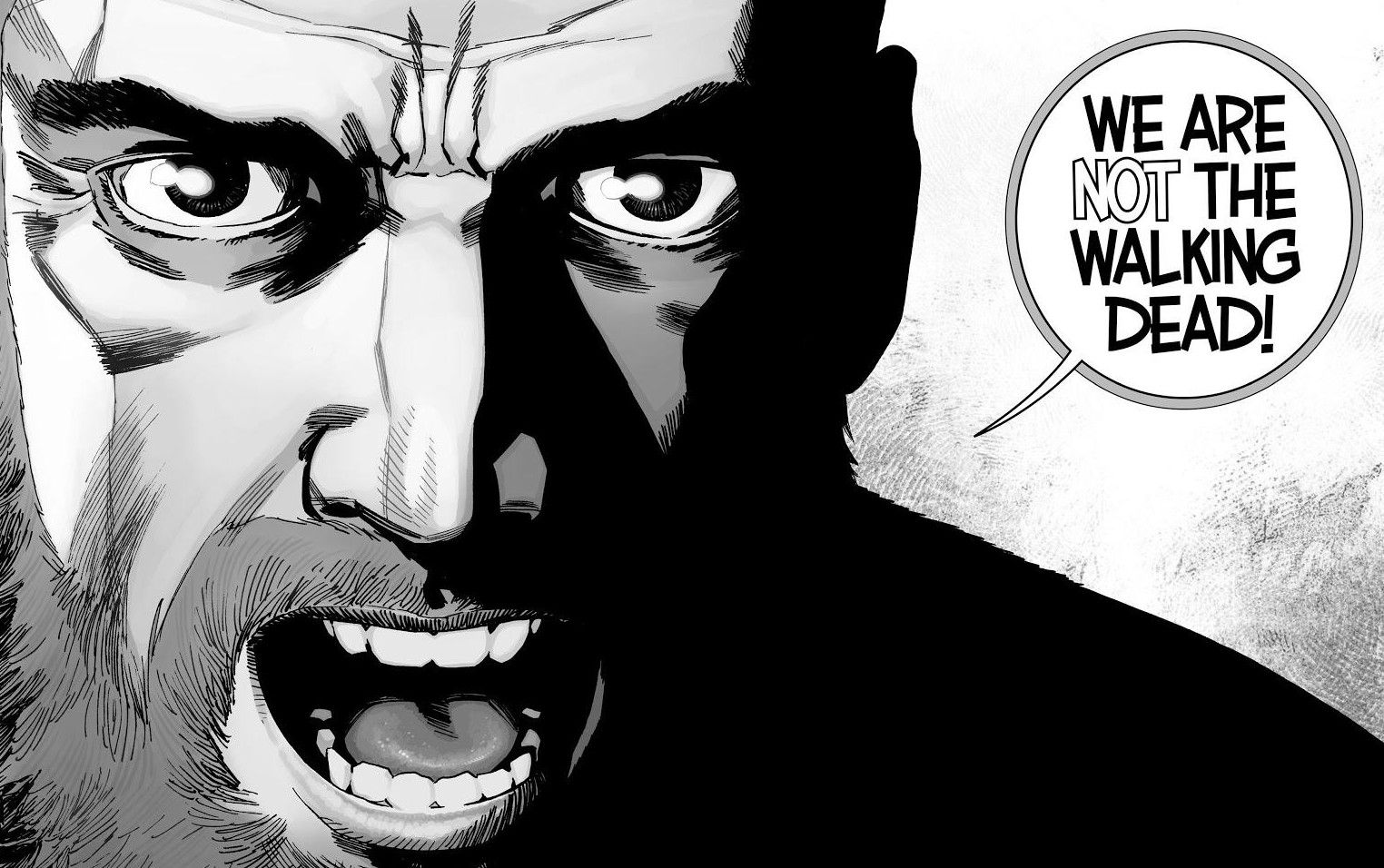
While Robert Kirkman implored his readers to consider the factors that led to some of his characters’ most shocking actions, he also acknowledged that his creations’ increasing alienation from the reader was actually his “favorite thing about the book” at that stage in its publication. He wrote:
It’s becoming harder and harder to understand the motivations of these characters. We SEE them living in this world, but we don’t ourselves go through anything close to what they do in our everyday lives. So if you think about everything that’s happened to Rick…it makes his decision a little more understandable.
Interestingly, although not even Kirkman knew it at this point, this discourse on Rick’s morality came at the exact half-way point of The Walking Dead’s run. Meaning many of its character’s most brutal, and at times highly questionable, actions and decisions were still to come.
This explanation from Robert Kirkman came in response to a fan letter, which was highly critical of Rick’s actions in Walking Dead #83. In the issue, Rick was forced to abandon another survivor, Jessie, to be devoured by zombies when she wouldn’t leave her son Ron, who had been bitten, behind – even going so far as to chop off her hand when she wouldn’t let go of Carl. “Had Rick not done what he did,” Kirkman wrote in defense of the character’s actions, “they would have all died.”
According to Kirkman, Jessie and Ron’s deaths were “possibly the saddest and most brutal…in the series.” In large part, this was a result of the fact that, in their final seconds, they became just another obstacle to Rick, rather than people he’d sworn to protect. Of course, the emotional gutpunch of this scene – and the moral complication of the moment for Rick Grimes – was precisely what Robert Kirkman wanted when he wrote the scene that way, and the fan letter in Walking Dead #87 proves how effective it was.
To the fan’s point, Kirkman responded that Rick’s actions could still be considered heroic, by the warped logic of The Walking Dead’s zombie apocalypse.
Rick Grimes Was Desperate, Not “Despicable”
Walking Dead #83 – Written By Robert Kirkman, Art By Charlie Adlard
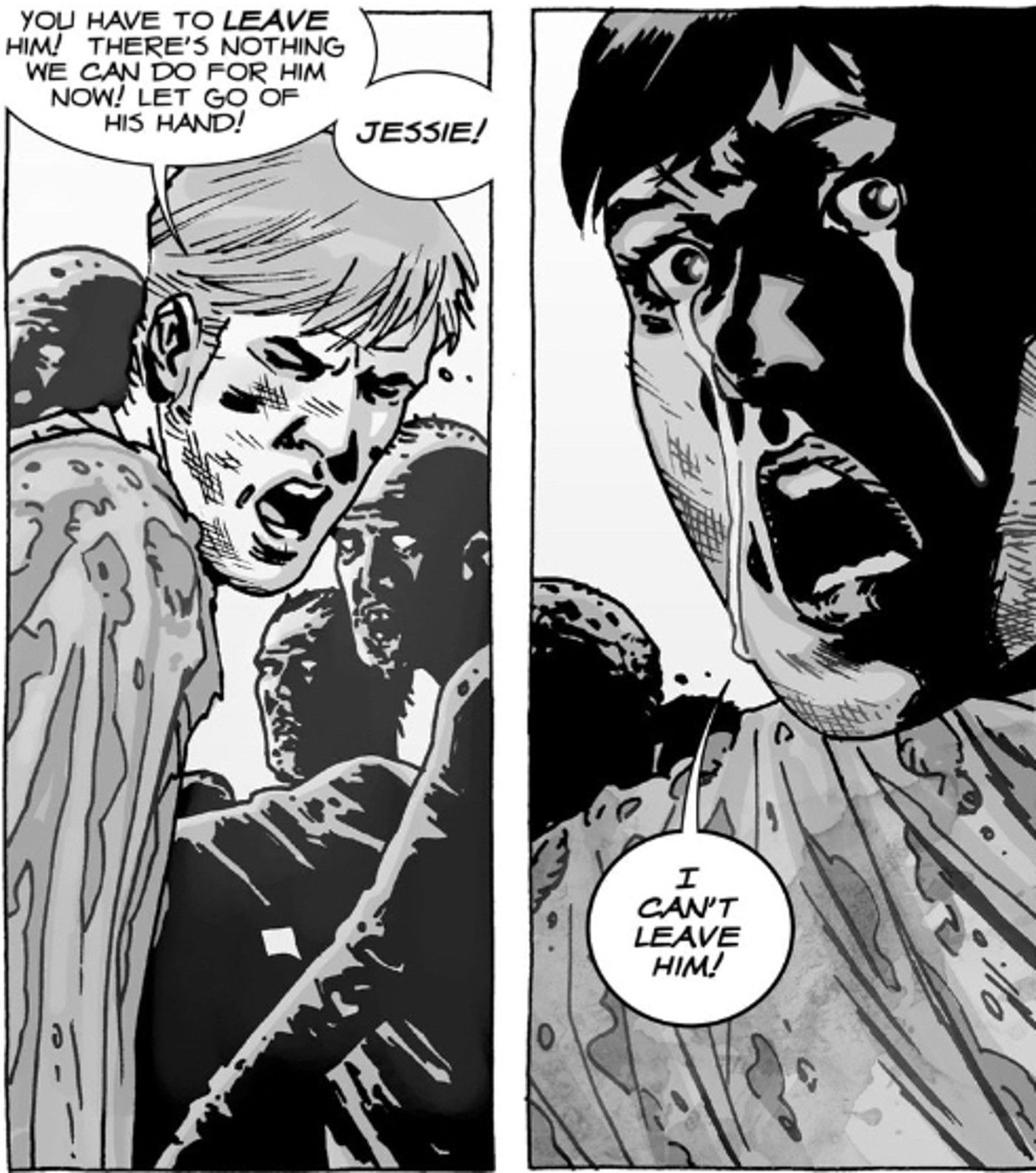
The fan letter in Walking Dead #87 displayed the exceptional emotional investment that The Walking Dead evoked in its readers, which was the key to its phenomenal success from start to finish. The writer of the letter was deeply unsettled by Jessie and Ron’s death, and Rick’s actions in that scene, and wrote passionately in response:
After Rick left a person he loved to die in such a cold-blooded manner, I had nothing…I despise him as a person, and wouldn’t trust him anymore.
And how is he repaid when he himself is in trouble a bit later, fighting off the zombie horde to save his son’s life? People from all over town come to his aid. He would have left them and their kids to die, but when he is in trouble they all come to help him. He really didn’t deserve that. At least Carl and the doctor lady are already saved…so their help is not wasted on just this despicable, selfish man…I used to admire Rick, because he was always there for his people. Even when he had to make tough, and unpopular, or morally ambiguous decisions. I know, heat of the moment, extreme situations and all that. But chopping off Jessie’s hand? The old Rick would have found a better way, or at least he would have tried.
“And let’s just take note that Rick did in fact SAVE Carl,” by making the difficult decision to separate from Jessie and Ron, in order to save himself and Carl, Kirkman wrote in response.
To the fan’s point, Kirkman responded that Rick’s actions could still be considered heroic, by the warped logic of The Walking Dead’s zombie apocalypse. In Walking Dead #83, the young character Ron panics when surrounded by zombies, and is quickly devoured. Of course, his mother goes to him, at the cost of her own life. Her actions in that moment make sense, but sadly, so does Rick’s unflinching will to survive, whatever the cost. As Kirkman put it:
He did something that will haunt him forever, in order to save his son’s life. Then he willingly dove back into the fray to protect Carl and Denise as she worked on him. In the world of The Walking Dead …that’s about about as close to a hero as you can get…right?
In other words, while the fan’s intense reaction is justified, it can also be said to be overly harsh toward Rick.
Rick Was The Walking Dead’s “Hero”, For Better Or Worse
First Appearance: Walking Dead #1; Last Appearance: Walking Dead #192
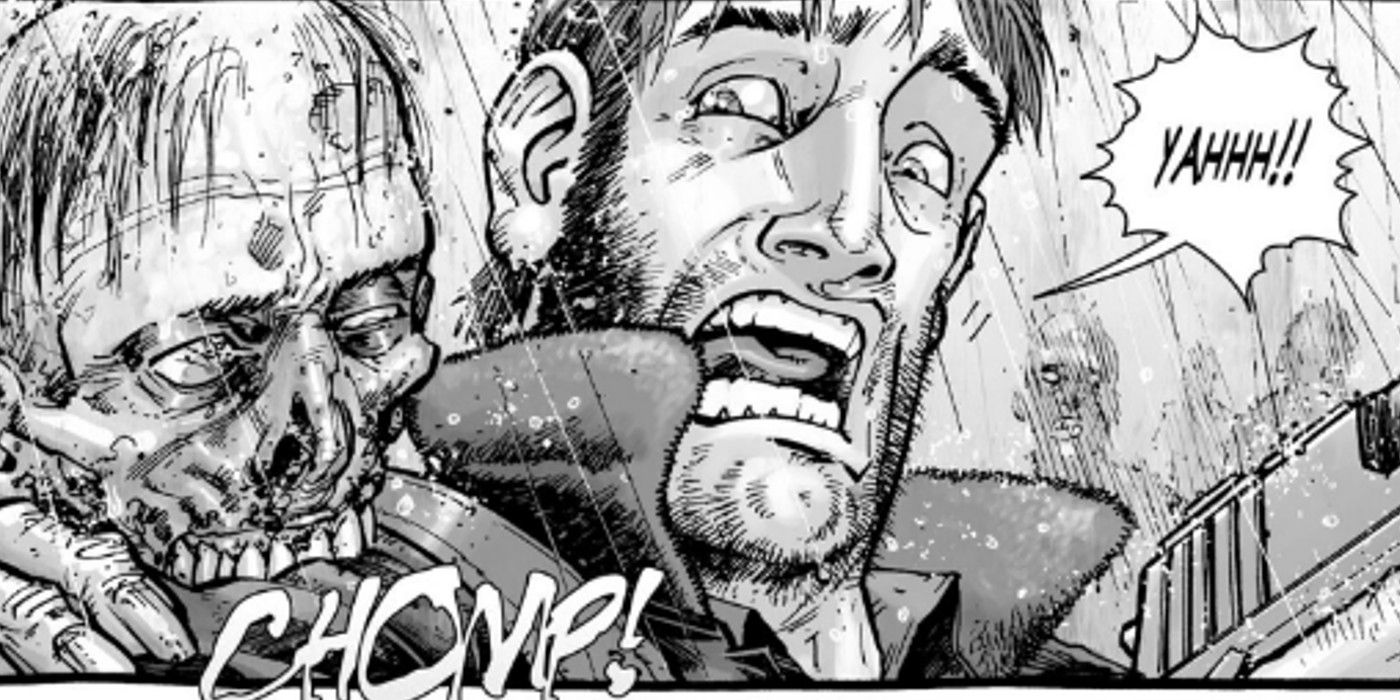
Whether readers decide to forgive Rick, or any of The Walking Dead’s characters for their worst actions, or not, is a choice each person gets to make for themselves.
As The Walking Dead went on, Rick Grimes was increasingly relentless, and ruthless, in the pursuit of survival against all odds. His death, when it came in the series’ penultimate issue, was violent, but it was shocking and unpredictable – as were so many of Walking Dead’s best deaths – and out of his control. The fact that he made it as long as he did, and that he ensured that his son Carl survived to adulthood, were the result of Rick’s growth from a resolutely noble character into a harsh, morally complicated person.
As the flashforward epilogue to the series in Walking Dead #193 showed, Rick would come to be venerated not only for keeping himself and Carl alive, but for guiding humanity through the darkest years of the zombie outbreak, offering them what stability and strength he could so that they could one day begin to rebuild society, even if he ultimately didn’t live to witness it. In this way, more than just being its protagonist, Rick truly did remain the “hero” at the heart of the story.
In the end, as Robert Kirkman put it, the matter of judging Rick for his actions came down to the fact that everything he did had an impact on him. As he noted in the letters page to Walking Dead #87:
I think if Rick was completely unaffected by his actions, I’d agree with you, he’d be despicable. But I hope you find it in your heart to see his side of things.
Whether readers decide to forgive Rick, or any of The Walking Dead’s characters for their worst actions, or not, is a choice each person gets to make for themselves. In part, this is one of the virtues that makes The Walking Dead one of the most vital stories of its time.
Source: Walking Dead Deluxe #87 (letters page)
